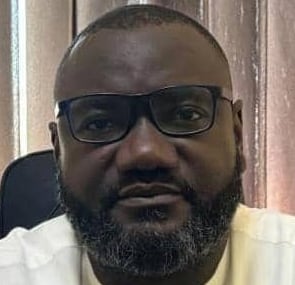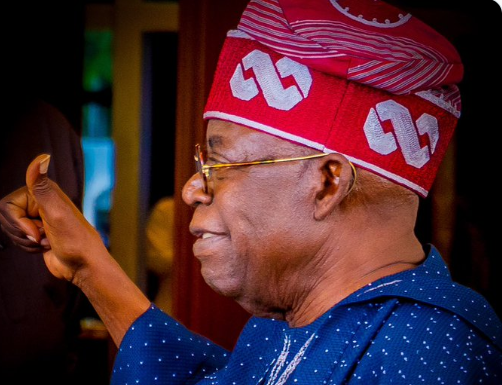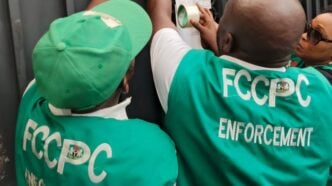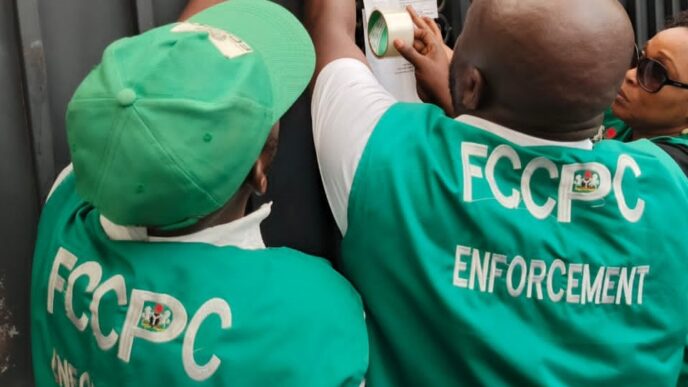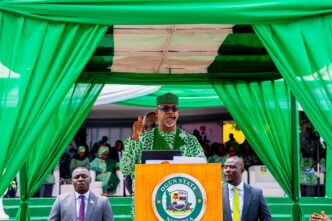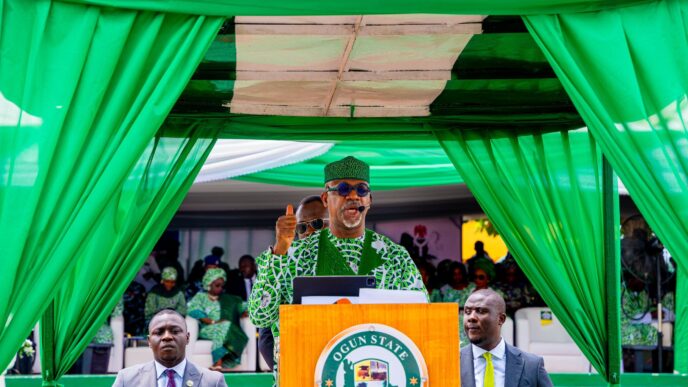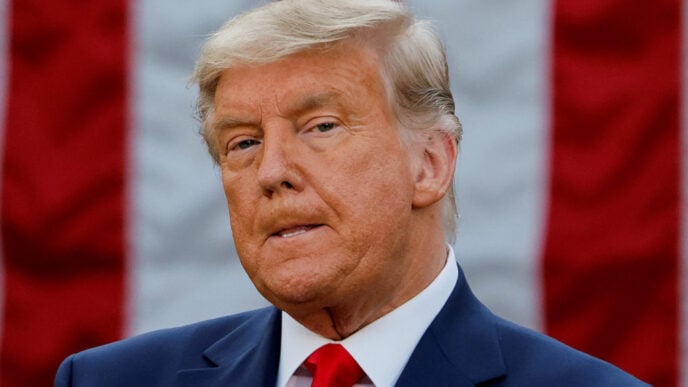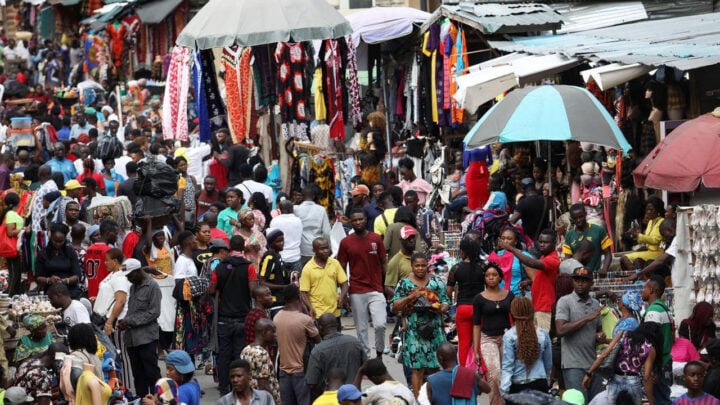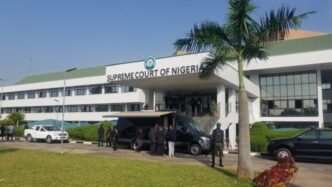Bola Tinubu
In my previous article “What if Tinubu doesn’t contest in 2027?” I attempted to create a counterfactual history of the 2027 presidential election. I hypothesised that President Bola Ahmed Tinubu didn’t contest the 2027 elections. I analyzed his choices and how they eventually led to victory for the All Progressive Congress (APC). Counterfactual history is “conjecturing what did not happen, or what might have happened, to understand what did happen.” From the feedback I received about the article, there was collective disagreement with my analysis. For many, President Bola Ahmed Tinubu would contest the 2027 elections. They made strong points to back their position, which I believe was contingency history that emphasized “that all things are possible. Except that all things are not possible”
Adam Rothman, a Professor of History at Georgetown University, USA, argued that “Historians often invoke contingency to imply that nothing is inevitable. Things could have gone one way or another. The concept goes hand-in-hand with the agency, that all things are possible. Except that all things are not possible”. This is very apt and forms the position of this article that President Bola Ahmed Tinubu will contest the 2027 elections. And not just that, he would win the elections. The question is how?
We must admit some bitter truths. The president holds the ace. His grip on the political environment is tight. This has been his area of strength. This much has been acknowledged and recognized. This trajectory can be gleaned from his days as governor of Lagos state and the central godfather position he has since assumed by installing his three successive governors. Not forgetting the role he played in the emergence of Muhammadu Buhari as the presidential candidate of the APC in 2015, and the eventual success of the party at the polls. How he also emerged as the presidential candidate of the APC in the 2023 elections also gives insights into his grip on the political environment in the country. He said it was his turn and he got it. (Emilokan). It is only a Tinubu that can get away with such political arrogance.
He also picked a running mate from the same religious faith. He dared to pick a non-Hausa-Fulani running mate, against Nigeria’s political algebra. Yet, he got more votes from the northwest — the geo-political grouping with the largest voting figures in the country, than from the southwest, his indigenous sociocultural original. He beat Atiku Abubakar in the north-west, securing 2,652,824 votes compared to Atiku’s 2,197,824. This was a strong political statement and also a testament to his grip on the political environment. Politics is about give and take. Morality does not have a place in politics. Jonathan Haidt, a specialist in moral and political psychology, in his work “The Righteous Mind: Why Good People are divided by Politics and Religion, argued that “We like to believe that we are moral and ethical in our political stances. Our sense of morality is first of all about emotions. We think that our morality is founded on reason, but most of it is instinctual. We just supply the reason to justify our moral sense, proving that reason is a slave to the passions.” Unfortunately, the political discourse in Nigeria has focused on morality.
Advertisement
Hannah Arendt, a German-American historian and philosopher and one of the most influential political theorists of the 20th century postulated that “truth and politics are on rather bad terms with each other, and no one, as far as I know, has ever counted truthfulness among the political virtues. Is it the very essence of truth to be impotent and of the very essence of power to be deceitful? With this knowledge, it is necessary for us not to take things personally when it comes to politics. Politicians always cut deals. It is an integral part of the game, and Tinubu used this strategy effectively.
President Bola Ahmed Tinubu will contest and win the 2027 presidential elections because there is no opposition in the political space. The People’s Democratic Party, (PDP) is in shambles. I don’t see the PDP putting its house in order before the 2027 elections. Take it or leave it, the soul of the PDP is controlled by a principality that you and I know. And the principality is in bed with the APC. The Labour Party, (LP), has lost steam. The opportunity it had was a one-off. There can’t be such an opportunity again for the Labour party. Don’t forget that the party was underestimated and it almost ruffled feathers. That was an unforgivable sin. The crisis rocking the party is indicative. I can bet that Peter Obi won’t get the ticket of the Labour Party, and even if he does, his impact would not be felt because his options would be greatly limited.
President Bola Ahmed Tinubu will cut deals with the northern oligarchy that controls the royal and religious hegemony and the sail to win the election would be without turbulence. The bitter truth is that nobody can emerge as president without the support of the North. Give it to the north, they hold the aces because religion is a factor in political outcomes in Nigeria and in the north, religion is king. The religious interest must be preserved and protected. Unfortunately, this is a factor that has been downplayed by non-northerners in political strategy and outcomes. Religion dictates who gets what, when, and how in Nigeria.
Advertisement
President Bola Ahmed Tinubu will secure the ticket of the party. At times, I wonder how he commands such loyalty. But I came to understand that the president is extremely generous in politics and its appurtenances. What is politics without money? Does the president have resources at his disposal? And does money define political outcomes in Nigeria? If the answer is yes, then President Bola Ahmed Tinubu contested the 2027 presidential elections and won. You can take this to the bank. Those who think the price of a mudu of rice or beans is a factor in political outcomes are in slumber. It doesn’t work like that in politics because “all things are possible. Except that all things are not possible.”
Karl Marx in his work “The Eighteenth Brumaire of Louis Bonaparte” stated that “Men make their history, but they do not make it as they please; they do not make it under self-selected circumstances, but under circumstances existing already, given and transmitted from the past.” But President Bola Ahmed Tinubu defied this. He made his history as he pleased and under self-selected circumstances. This is contingency history.
Ocheja, a military historian and doctoral researcher, is an alumnus of the Nigerian Defence Academy.
Advertisement
Views expressed by contributors are strictly personal and not of TheCable.
